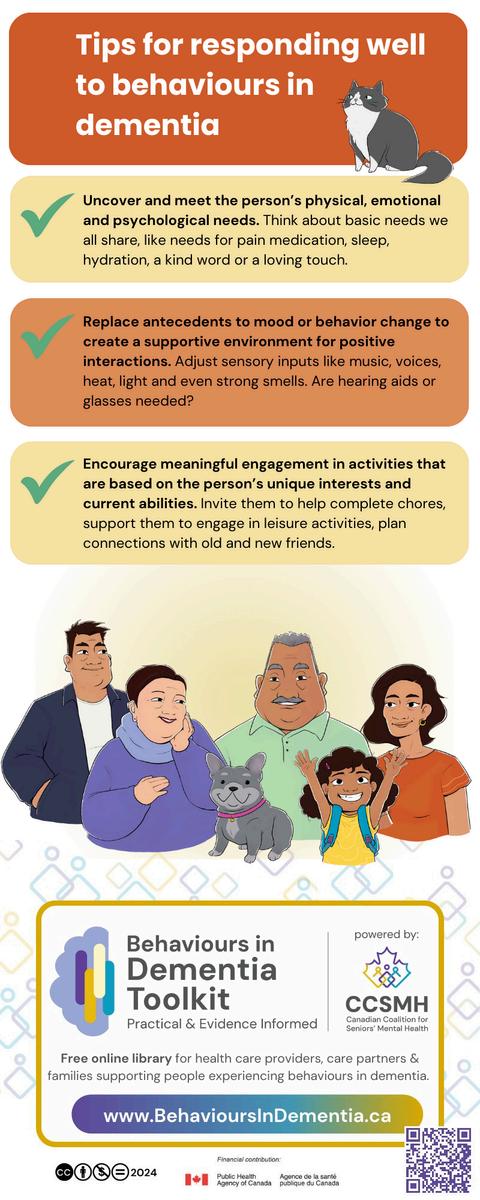



curatesproactivestrategiesto preventamissingevent. Connectinggenerationsthrough theIntergenerationalJamboree.






curatesproactivestrategiesto preventamissingevent. Connectinggenerationsthrough theIntergenerationalJamboree.

I’m so grateful my role includes interviewing people with dementia to learn about the strategies they use to live well. It was exciting to learn from Aussie adventurer and advocate, Bill Yeates, about how he navigates young onset dementia for this Summer issue of Dementia Connections. The post-diagnosis life Bill has crafted is truly inspiring!
I’m also inspired by researchers across the globe pursuing innovations in care and potential cures for dementias. It was fascinating to speak with Dr. Noelannah Neubauer and learn about her work to support the autonomy and independence of persons living with dementia with practical resources that help manage the risk of getting lost and going missing. And I loved hearing about about young children and older adults coming together in care homes through the joyful Intergenerational Jamboree Program created by researcher Dr. Kate Dupuis.
Along with these stories, our Summer newsletter is packed with practical resources and tips for adapting amid the changes dementia brings.
Get in touch - let me know which stories and tools in this issue were helpful for you, and what you’d like to see in our September issue.


Wishing you a relaxing summer!
Carolyn Brandly, EditorEditor@DementiaConnections.org
Dementia Connections is a social purpose organization on a mission to amplify the voices of people impacted by dementia and to share expert advice about living well with dementia.
Statements, opinions and viewpoints expressed within this publication do not necessarily represent the views of the publisher. Copyright 2024 by Dementia Connections Canada Ltd. No part of this publication may be reproduced without the express written consent of the publisher. Advertising inquiries Connect@DementiaConnections org



Learn how to reduce your risk of developing dementia with a free micro-learning series from McMaster University.
Discover what recent research says about the actions you can take to promote brain health including managing your blood vessel health, protecting your hearing, the importance of cognitive and social activity, and more. You will receive one email each week for 12 weeks. It’s free!

mcmasteroptimalaging.org /e-learning/dementia-risk
The Canadian Consortium on Neurodegeneration in Aging (CCNA) program is seeking Advisory Group members as collaborators in planning, conducting and communicating CCNA research.
They welcome hearing from all people with lived experience of dementia (including caregivers/care partners, friends and family) who may be interested in contributing to the work of the Advisory Group.
epled.ca/en/joining
The BC Centre for Palliative Care has developed advance care planning resources, including conversation starters, checklists and workbooks are available in English, Hindi, Punjabi, Simplified Chinese and Traditional Chinese.

bc-cpc.ca/acp/
Culturally relevant resources in Punjabi, Hindi and Urdu are available for free at Forward with Dementia to support conversations about topics like What is dementia? and Questions to ask after a diagnosis.
forwardwithdementia.ca/ southasian/

Learn more
Antipsychotics for dementia linked to more harms than previously acknowledged Alzheimer’s Research UK
Researchers use AI to improve Alzheimer’s disease treatment through the ‘gut-brain axis’ Cleveland Clinic
Seniors who garden reduce their risk of dementia by 36 per cent even more than those who walk every day
Persons living with dementia are at a higher risk of getting lost.
This interactive guide helps you find ways to stay safe based on your lifestyle and preferences.
Assess your risk

canadiansafewandering.ca/
This extraordinary how-to manual provides essential information about living with dementia from 48 people living with dementia, care partners, and leading dementia specialists.
Created by the Dementia Action Alliance, the practical, helpful information is grounded in science and is presented in a userfriendly format.
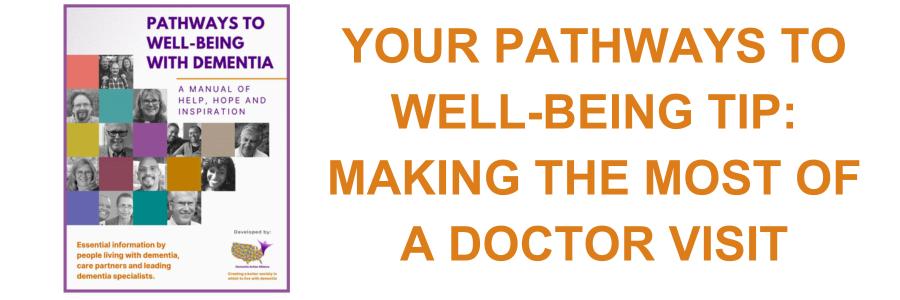


Behaviours in Dementia Toolkit is an online library of over 300 free resources to help you better understand and compassionately respond to dementia-related changes in mood and behaviour.

behavioursindementia.ca

Parenting represents one of life’s most challenging endeavors. If you manage this while fulfilling the myriad demands of a caregiver to a severely ill spouse, you need support.
It’s possible to let the emotional needs of your children, who may present themselves as quite independent, slip away in favor of fundamental safety, financial survival, or life and death decisions. But your children require even more of your attention and affection during this time.
This site, created by the National Initiative For Care of the Elderly (NICE), offers tips to help you navigate the unfamiliar territory of FrontotemporalDementia (FTD) when everyone is relying on you.
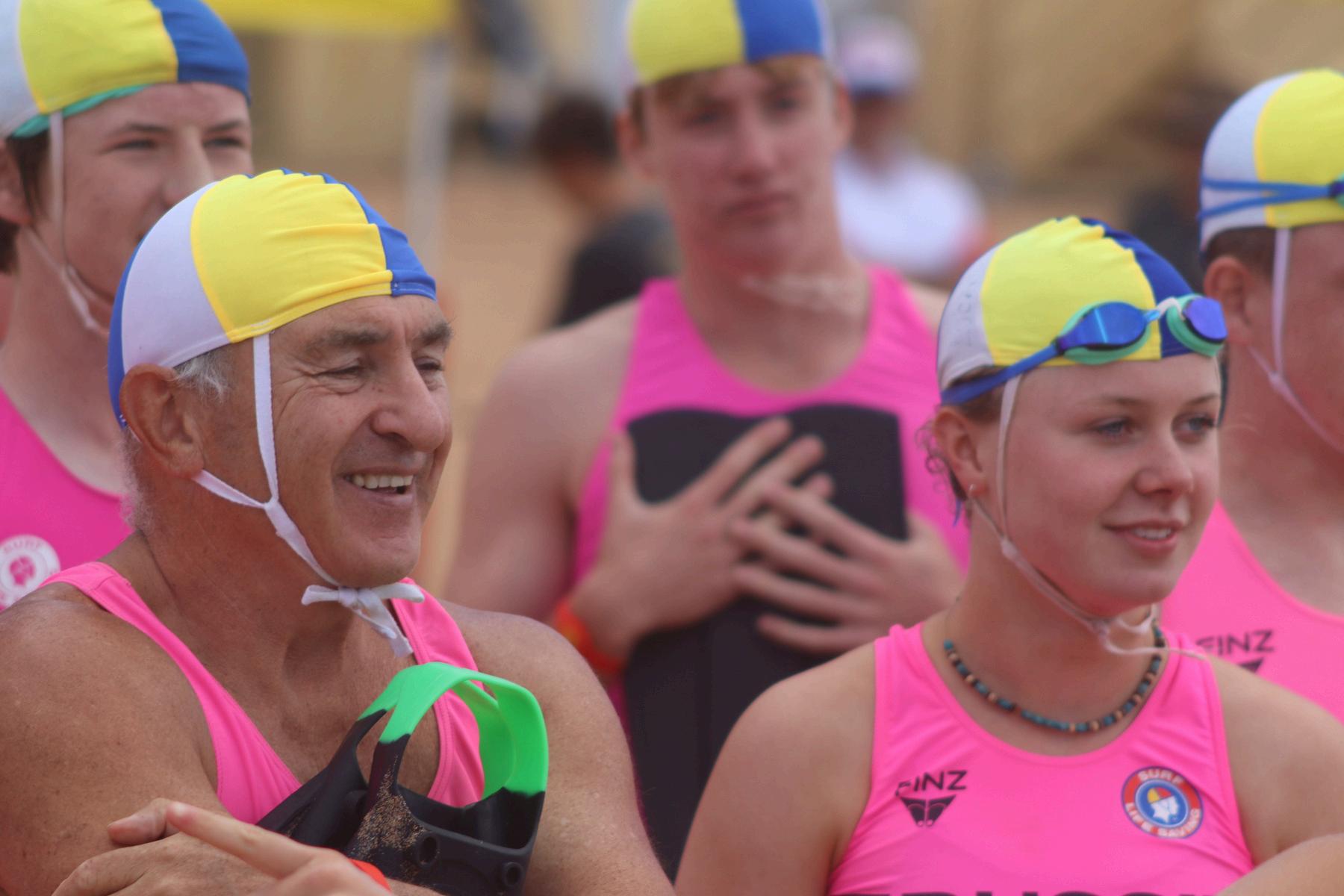
Q&Awithadventurer andadvocateBillYeates

BillYeatestaughtchemistry,physics,andmathematicsinAustraliafor35years, beforeexperiencinga‘depressiveepisode’thateventuallyledtoadiagnosisof youngeronsetAlzheimer’sdiseasein2019atage59.

Withthesupportofhiswife,Nicole,theirchildrenandPeter,histwinbrother,Billhas createdadynamicandengagingpost-diagnosislifeasamasterscompetitorin swimmingandsurflifesaving,championlifesavercoach,communityfundraiser,and dementiaadvocate.
Billinformsandinspiresothersaroundtheglobetocreatepositivechangeforpeople livingwithdementiathroughpresentationsandmediaappearances.He’salsoaliving testamenttothepowerofpositivityandactivelychallengesthenarrativeofthe dementiajourneyasoneonlyofprogressivedecline.Foreverateacher,Billhascreateda personcentred,holisticapproachtonourishinghisbody,heart,mind,andsoulthathelps himmanagesymptomsandmaintainhisindependence.
DementiaConnectionscaughtupwithBilljustashewasleavingtopresentatthe2024 Alzheimer’sDiseaseInternational36thGlobalConferenceonDementiain Krakow,PolandbeforetravellingontoEnglandandNorway. 7
Bill I didn’t initially cope well with my diagnosis. I refer to it as a period of darkness, where socially I retreated. I felt sorry for myself, and I ate and drank too much. After I received my diagnosis, my darkness came from the fact that all my dreams and my aspirations, what I wanted to achieve for the rest of my life were taken away from me.

How did you begin to overcome the shock of your dementia diagnosis and begin to remove some of what you described as the ‘doom and gloom’ that surrounded you? 1)OutinHello!shirtswithDaniela,personalsupportperson 2)TrainingwithLukeatEmpowerPhysiology

Thankfully, I had a group of friends who said to me "Why don't you come to Japan to support the Wallabies in the 2019 Rugby World Cup?" I had decided the trip was my last hurrah, but I ended up having such a fantastic time that I realized that I was the one allowing the darkness to surround me. I needed to change.
I came to the realization that, okay, it's a progressive, it's an incurable disease, accept it, and then move on with your life, and that sort of initiated me coming back to life.
I needed something structured to incorporate changes into my own life, with the hope I will be able to retain my independence longer thereby improving my quality of life as this disease progresses.
-BillYeatesWhat did people around you do that was helpful during this time?
Bill I was very, very lucky in the sense that I have a twin brother and a core group of friends who stood by me to support Nicole, my wife and myself. And that was really, really important.
There were friends who just found excuses not to catch up with me Now I realise that a lot of it d factor ocate,



One of the highlights of my life was when three of my close friends got together and decided that we would raise the awareness of dementia in our local community. We have 14 iconic rock pools in our northern beaches, near where I live in Sydney, Australia, within a 19 kilometer stretch of coastline. Each year we invite people to a swim rock pool tour as a fundraiser and together we have raised ninety-five grand over the past three years. We’ve donated all the funds to organizations in our area supporting mental health and wellbeing. So that's the type of thing that I mean - friends willingly give up their time to support me has been incredibly helpful.
How did you come to develop your approach to living well with dementia – that you call the Tree of Awakening your Positivity?
Bill When I came back from Japan, I decided to fight this disease. I had to accept the diagnosis, but there's always a glimmer of hope somewhere. I realized I needed to come up with a plan to live my life. I chose to change my thinking to try to rebuild myself and rediscover who I now wanted to be.
My first glimmer of hope was to enroll myself in a clinical trial. I saw my diagnosis as being associated with an anti-inflammatory response. I saw it as there must be some inflammation, stress-induced, diet-induced, or whatever, a whole range of things which had caused the amyloid beta deposits to buildup in my brain. I found a clinical trial in Sydney where I matched the inclusion criteria and I thought - that's what I've got to do.
The second thing was I looked and looked to find a post-diagnostic care and support program. I couldn't find anything. I had learned that with younger onset Alzheimer's disease can progress quite quickly so there is a finite amount of time to intervene. Even with a diagnosis, the risk factors for dementia should also be on your radar as they can help to slow down this disease.

I believe it might be possible to change the expected trajectory of a disease such as Alzheimer’s by adopting a comprehensive personcentred, holistic approach into your daily life. Over the past three and half years, I’ve developed my Tree of Awakening your Positivity to manage my diagnosis on a daily basis.
I needed something structured to incorporate changes into my own life, with the hope I will be able to retain my independence longer thereby improving my quality of life as this disease progresses. In doing so, I am able to exert a measure of control over my own life by living a life that I want to.
From my experience, each of the four aspects of self (body, heart, mind, and soul) are interconnected and exert a synergetic relationship with each other.
I believe, it is only when the four aspects are nourished by their own individual leaves (Leaves of Positivity) that you can reset your body to create a balanced harmonious environment that will help you manage and



In most cases, the ‘Leaves of Positivity’ that I have range of actions, strategies and interventions tha Whenever I have encountered difficulties and tho from a past student, Alison, echoes in my mind – ‘Just keep swimming’. For me this is the most important leaf in my tree.
Until a cure is discovered the endpoint of the disease will still be the same but at least you can have the possibility of extending your life expectancy and living a better quality of life.
I
think the important thing in breaking that stigma down is to understand that people with a disability have a right to enjoy life and have a right to become involved in their local community.
-BillYeates
How can we end the stigma that surrounds a diagnosis of dementia?
Bill For me, it's having role models and being a role model to try and break stigma down.
When I compete in masters events I don’t have a problem informing everyone that I have Alzheimer's. This way, people can see a person living with dementia normally. Now, people often come up to me saying, "You've shown me a completely different side to what it means like living with dementia." You’ve got to be able to balance up the dark side of it.
Getting out and socialising with people, having fun with people, competing with people has worked well for me. I think the important thing in breaking that stigma down is to understand that people with a disability have a right to enjoy life and have a right to become involved in their local community.

Learn more at Bill’s website AwakeningYourPositivity
Read more stories by people living with dementia in our Live Well article archive
Didyouknow?
Adults who take short day trips to the woods boost their levels of immunoproteins and natural killer cells for at least 7 days. Boost your immunoproteins and virus fighting cells through nature. PaRxCanada'sfirstnational,evidence-basednatureprescriptionprogram.
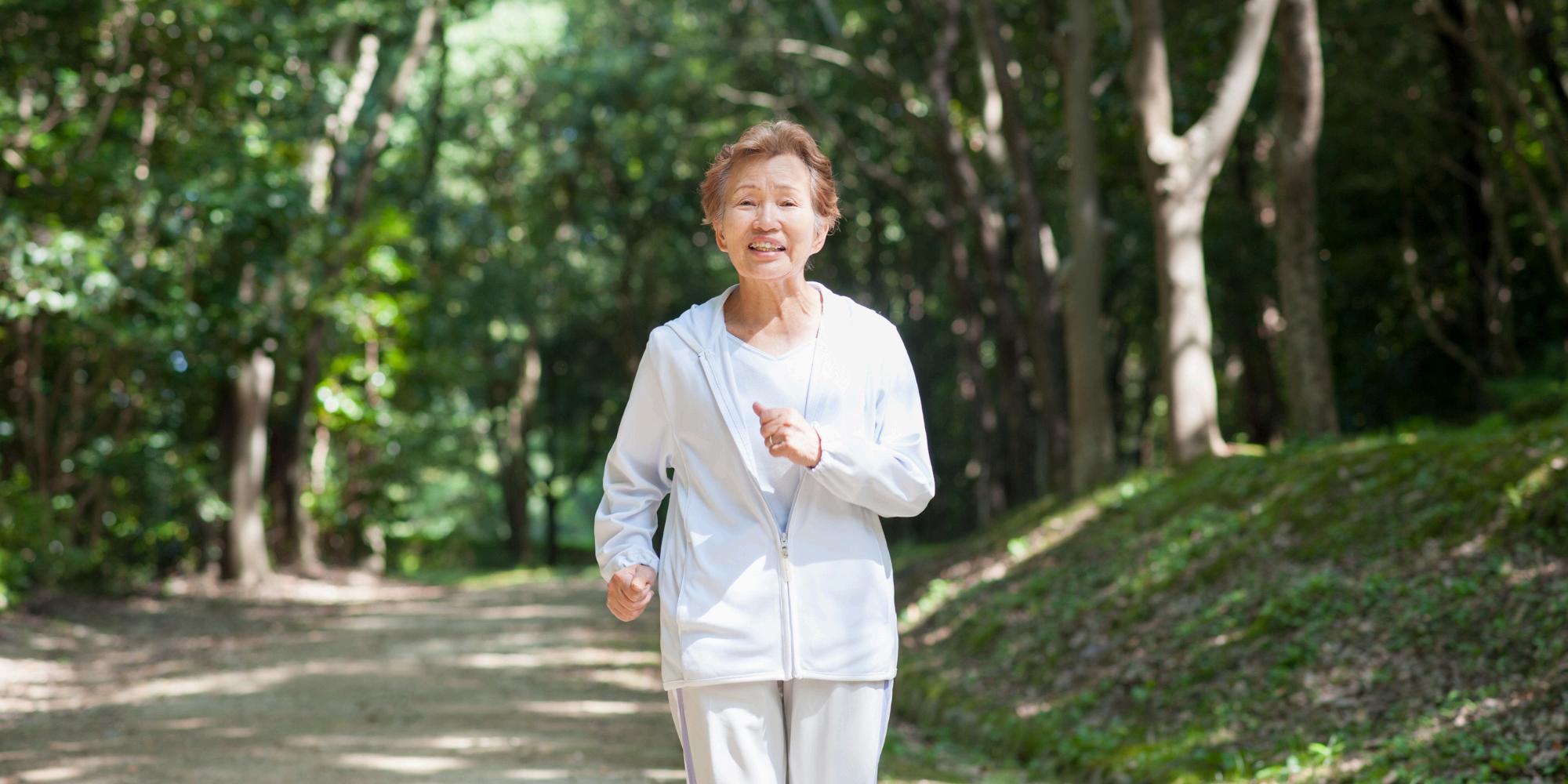



The right to move about freely in our homes and communities is important to everyone. For people living with dementia who may have challenges to wayfinding, balancing freedom with safety requires both preparation and planning to prevent a missing incident.
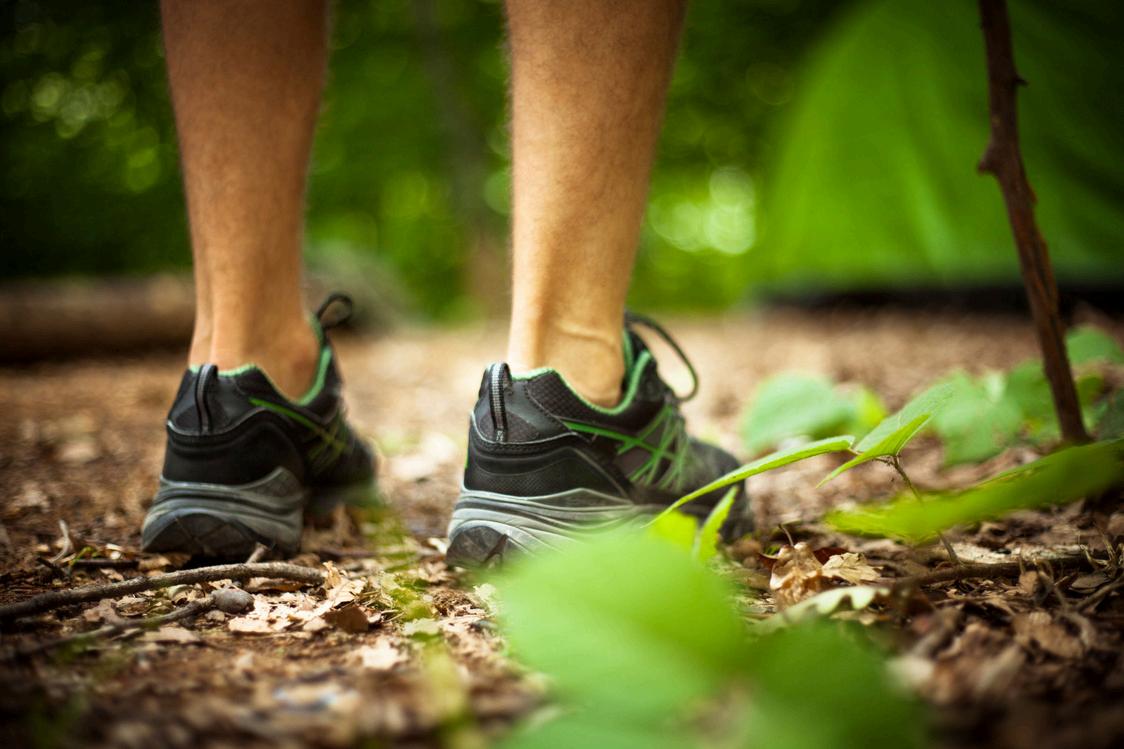
Clinicians and others involved in the health and social care of people living with dementia will also find the new toolkit helpful.
A new (and free!) toolkit from the University of Waterloo supports the autonomy and independence of persons living with dementia by offering evidence-informed strategies that can be used to create a comprehensive safety plan to help manage the risk of getting lost and going missing.
Together with the Alzheimer’s Societies across Canada, and led by Dr. Lili Liu, Dr. Noelannah Neubauer and Isabella Chawrun at the University of Waterloo, a team of persons with lived experience of dementia, community organizations and researchers spent three years reviewing Canadian and international wayfinding research and tools.
The work of the team brought together select strategies and information resources shown to reduce risks of getting lost and going missing into a comprehensive, interactive e-book toolkit designed for persons with dementia, their family members and friends.
“The whole purpose of creating the toolkit was not to reinvent the wheel” says Neubauer, an Occupational Therapist with Alberta Health Services and Research Associate at the University of Waterloo, “but to consider all of the factors that might impact wayfinding for a person with dementia, including unmet physical and emotional needs, and to bring helpful resources and strategies together into one comprehensive package”.
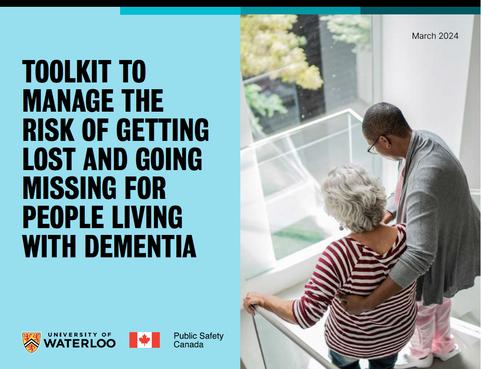
Topics covered in the toolkit include preparing for an emergency, preventing a missing incident, and improving wayfinding in the home.
The toolkit e-book is interactive - readers can access a variety of curated information resources with just one click. Printable pages make it easy to share the information and strategies with those not online. Case studies are incorporated throughout the toolkit to support readers to understand how strategies can help in a variety of scenarios. The comprehensive toolkit is available in both English and French, along with videos that describe how the toolkit can be used to support independence and safety for people living with dementia.
While not everyone living with dementia will become lost while navigating alone, it is an emergency when a person living with dementia becomes lost or is missing. A key aim of the toolkit is to get people with dementia and their care partners talking about risks to prevent getting lost rather than waiting until an incident occurs. People are encouraged to take a proactive approach and create a safety plan that includes strategies to increase safety now, and strategies to implement if an incident does occur.
Not one strategy will prevent a person living with dementia from becoming lost or missing. Multiple strategies are recommended to reduce the risks.
While technology, like GPS trackers or door cameras, can be helpful to support independence or reduce risk, “Solutions don’t have to be high tech. There are so many other things you can do that don’t involve technology” says Neubauer.
Let a family member or friend know where you are going, and what time you expect to be back. Have a family member or friend check in with you daily if you live alone.
Consider different strategies to help with navigation if wayfinding becomes a challenge.
What to do if a person living with dementia has become lost or is missing:
Call the police of emergency services in your area immediately after determining that the person is lost or missing. Be sure to state that the person is living with dementia.
Do a scan of the immediate area inside and outside while waiting for emergency services to arrive.
You may be asked to provide documentation such as: the missing person’s health card, driver’s licence or government issued photo ID, technology you use such as door cameras, locator devices and the missing person’s cell phone number.
Didyouknow?
Elders who reside closer to walkable green spaces live longer no matter what your age, general health or income is. Increase your life expectancy through nature. PaRxCanada'sfirstnational,evidence-basednatureprescriptionprogram.
In the short term, individuals at the University of Waterloo are in the process of applying for funding to support translation and cultural adaptation of the toolkit so the strategies and resources can become accessible to more Canadians.
Over the longer term, Neubauer aims to integrate the new toolkit with related resources she’s developed including the Canadian Guidelines for Safe Wandering to create a complete collection of resources that help reduce the risk of getting lost for people with dementia and improve response during a missing incident.

Learn more about the project UWaterloo.ca/mrdpd
Download the toolkit Managing risks of disappearance in persons living with dementia.




Created in Copenhagen in 2012, Cycling without Age is a movement spreading all over the world that pairs ‘pilots’ with older adults in adapted cycles called trishaws to enjoy the wind in their hair and the sun on their skin.
Cycling without Age has chapters all over the world (more than 45 in Canada) that support older adults living in community and in care homes to create positive energy through cycling that translates to better emotional health, improved appetite and sounder sleep.
Cycling without Age may also help to reduce stigma as it enables older adults and people with mobility issues to see and be seen in the outside world.
Find out more and get involved at Cycling without Age Canada.
Didyouknow?
From diabetes and heart disease to anxiety and depression, research shows that connecting to nature is a powerful way to improve your health. Connect to
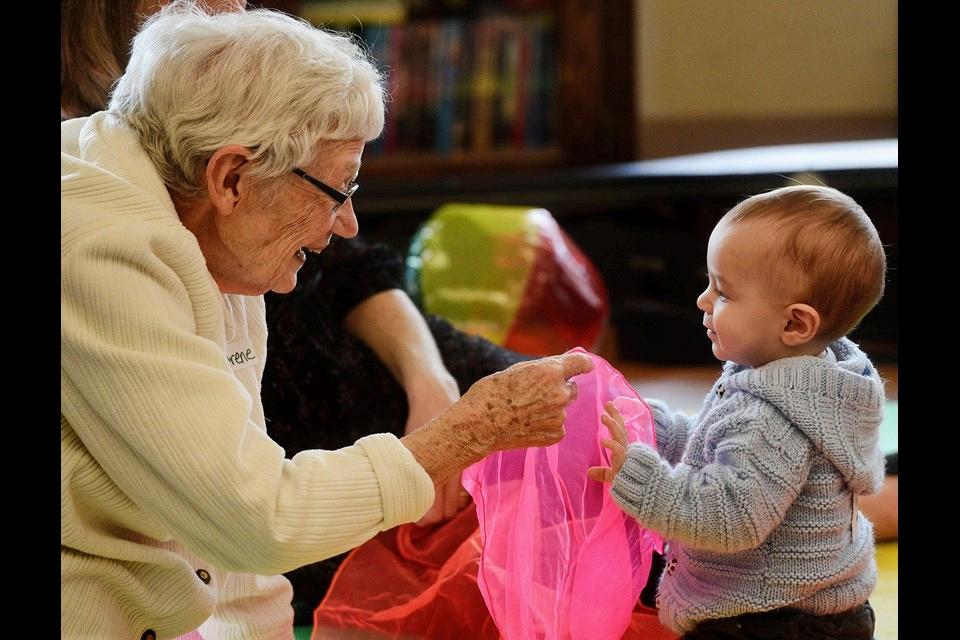

Many older adults living with dementia experience a decline in their social connections. The risk of social isolation and loneliness increases even further for older adults living in long-term care.
At a population level, as the birth rate continues to decline in countries worldwide, people live geographically distant from their families, and many individuals start having children later in life, older adults may have reduced opportunity for intergenerational connections.
A large body of research underscores the importance of intergenerational connections for breaking down ageist stereotypes and improving the well-being of older adults through fostering new relationships and encouraging communication and connection.
Music is a safe place for older adults, especially those living with dementia, to meet and connect with others. -Dr.KateDupuis
It is crucial to provide intergenerational opportunities for older adults, in particular those experiencing changes to their cognitive status and those living in communal spaces (e.g., long-term care) where there may be fewer chances to connect with others.
Music is a safe place for older adults, especially those living with dementia, to meet and connect with others. The universality of music means that even when spoken language becomes more difficult, or if people lose the ability to speak in a language they used to share with loved ones, they can still communicate through song, sound, and movement.
Music therapy is an evidence-based intervention technique in which accredited clinicians use music to address and work towards specific clinical goals. Music therapy has been used successfully with older adults, including those living with dementia.
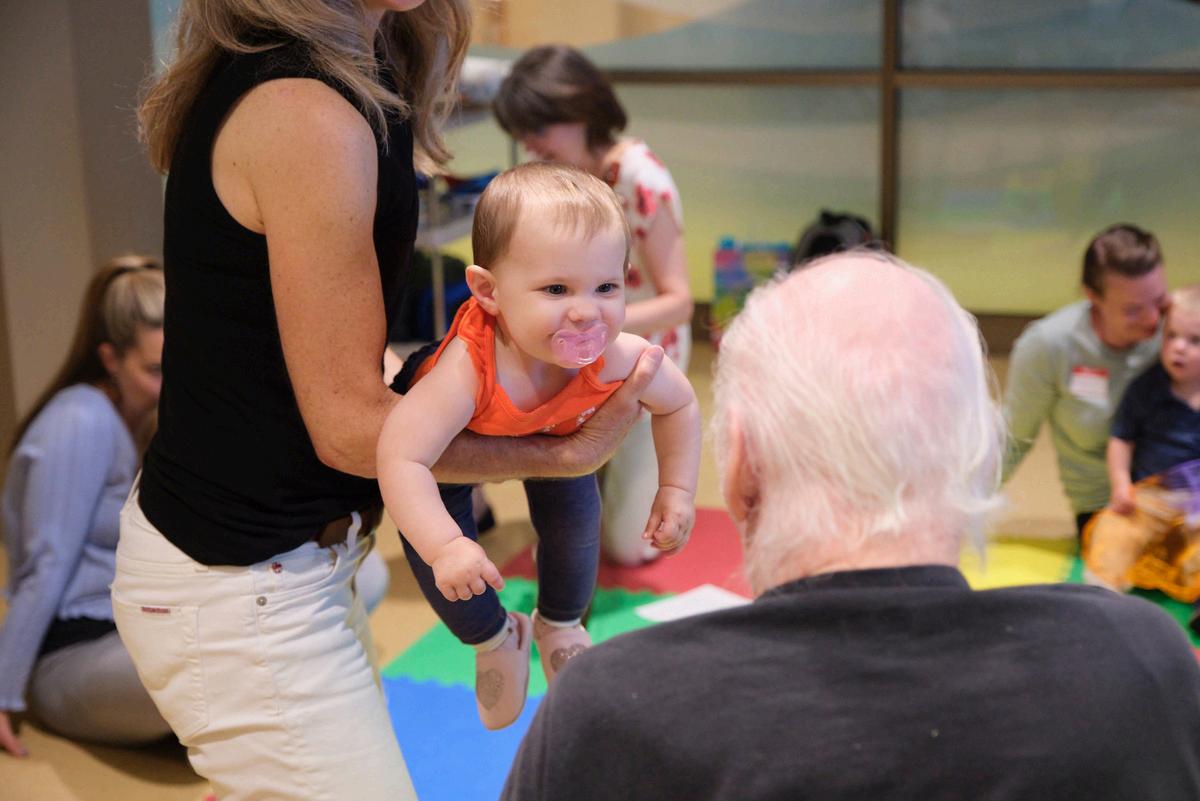
Decades of research have highlighted the myriad benefits of both intergenerational programming and music therapy, when offered independently. There is limited research on intergenerational music therapy, especially with very young children.
The Intergenerational Jamboree is an innovative music therapy program that combines these two techniques to help address the health and well-being of both younger and older individuals.
The Intergenerational Jamboree is an innovative music therapy program that combines these two techniques to help address the health and well-being of both younger and older individuals.
-Dr.KateDupuisThe Intergenerational Jamboree was co-created by the music therapist and director of recreation of a long-term care home in Guelph, Canada, in 2017 to purposefully address the lack of intergenerational connections for their residents.
In Jamboree, children typically aged four years and younger are invited to participate in musicmaking with their accompanying adult (e.g., a parent or grandparent). Residents are assessed for eligibility by a music therapist and participate in weekly music therapy sessions with the children.
In each session, the music therapist leads the participants in song, integrating instruments and activities such as bubble blowing, drumming, and dancing with a parachute. Songs are chosen that would appeal to both children (e.g., nursery rhymes) and the older adults (e.g., songs from the 1940s and 1950s).
This intervention provides very young children with the opportunity to connect with their “adopted grandmas and grandpas” through music. The program must be facilitated by a music therapist, to help participants benefit from their clinical expertise.
There is typically no “drop-in” option for Jamboree; participants sign up for the entire 8week or 12-week program, with each weekly session lasting approximately one hour and ending, in the words of program co-founder Kathy Lepp, MTA, “when everyone is still happy”.
Didyouknow?
This intervention provides very young children with the opportunity to connect with their “adopted grandmas and grandpas” through music’
-Dr.KateDupuisThis strategy gives participants the opportunity to get to know one another as the sessions unfold and learn about each other as the weeks progress.
Since 2018, our team has formally evaluated both in-person and virtual iterations of the Jamboree.
Our research findings demonstrate the incredible power of Jamboree to engage participants in music and movement, support formation of new relationships between young children from the community and their “adopted Grandfriends”, facilitate reminiscence in older adults, and help demystify dementia and introduce more children to long-term care.
People who take a walk in green space instead of on a busy street have fewer repetitive, racing thoughts. Give your brain a rest in nature.
PaRxCanada'sfirstnational,evidence-basednatureprescriptionprogram.
Too often, long-term care homes are siloed, with residents cut off from the surrounding community. The Intergenerational Jamboree encourages community members to come into the home and help fill the hallways with music and laughter.
Research supports benefits of the Jamboree not only for the younger and older participants directly involved in the program, but also for staff working in the homes who are observing the program as they go about their daily activities. Given the current health human resources staffing and retention crisis, the Jamboree is an excellent way to bring more moments of joy to the incredible staff members who care for our oldest neighbours.

Funding from the Centre for Aging and Brain Health Innovation (CABHI) is currently supporting expansion of the Intergenerational Jamboree to 15 sites across Ontario, including daycares, retirement homes, and adult day programs.


Listen and learn more about the Intergenerational Jamboree in this recent podcast from the Centre for Aging + Brain Health Innovation (CABHI)
Download the free Intergenerational Jamboree Program Implementation Guide from the Research Institute for Aging (RIA)
Kate Dupuis, PhD., C.Psych., is a clinical neuropsychologist and the Schlegel Innovation Leader in Arts and Aging at the Sheridan Centre for Elder Research, Schlegel-UW Research Institute for Aging.
Read more by Kate in our Live Well article archive Considerations When Seeking a Long-term Care Home Curating Meaningful Cognitive Care
Tips & Tricks for Facilitating Zoom Interactions for Individuals Living with Dementia
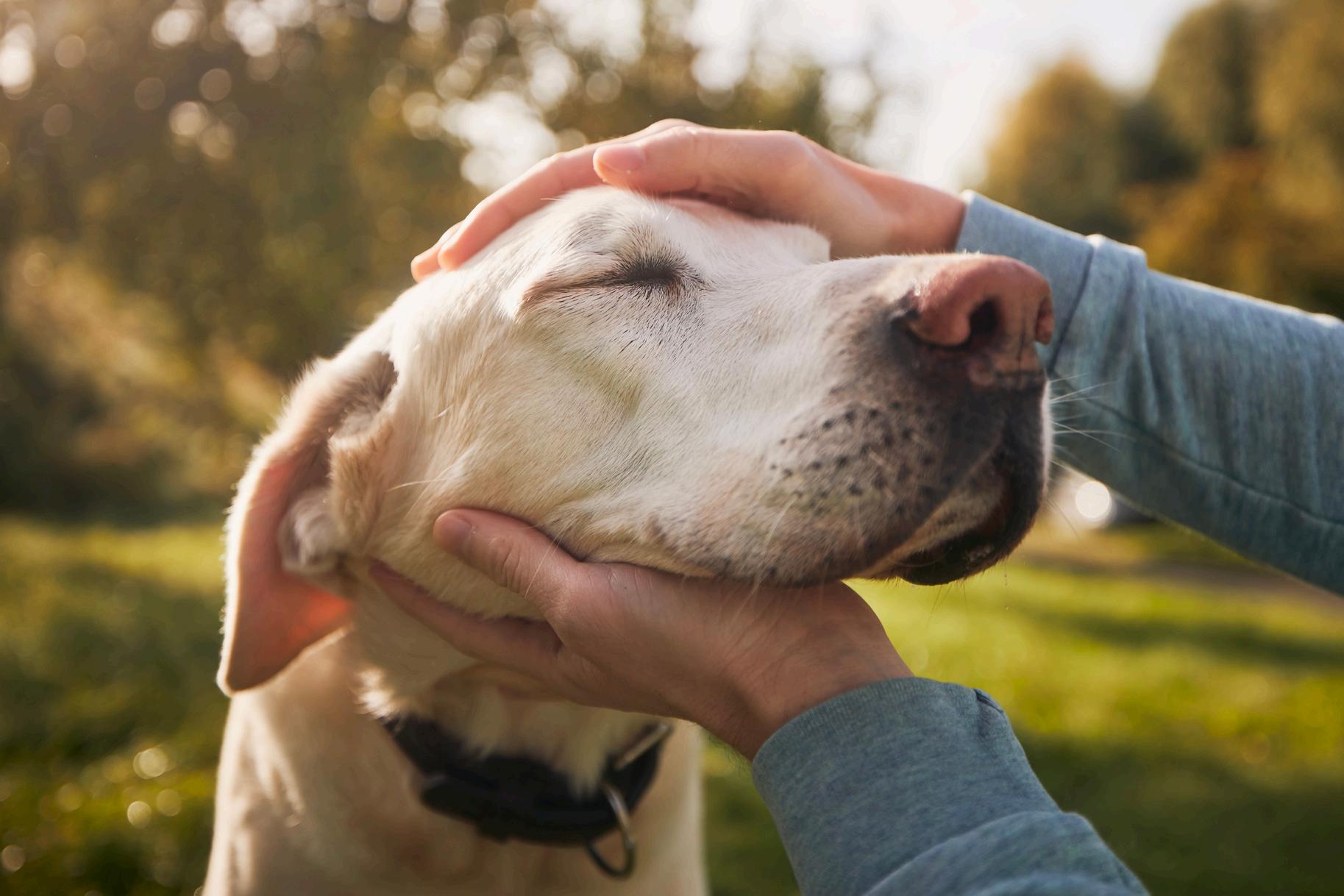



Tipsforcreatingdementiafriendly spacesfromaninteriordesigner.
byKerryMcGregor
Imagine trying to navigate in the world when you’re not quite sure what you’re supposed to be doing next.
Your brain isn’t clear, patterns and colours seem overwhelming, and you have an overcoming feeling of losing something. These are all feelings people living with dementia can feel each day.
Dementia affects so many people worldwide, causing memory loss, confusion, and difficulty communicating. As the global population ages, creating dementia-friendly spaces has become increasingly important.
Dementia-friendly spaces can significantly impact the quality of life for people living with dementia. Well-designed environments can:
Reduce stress and anxiety
Improve direction finding and wayfinding
Enhance social interaction and engagement
Support Memory recognition
Support independence and autonomy
Promote a sense of calm and comfort
Creating dementia-friendly spaces requires empathy, understanding and thoughtful design.
-KerryMcGregor, certifiedAginginPlaceSpecialist


1. Be Simple and Intuitive
Clear signage, minimal clutter, and straightforward layouts help navigate the space.
2. Contrasting Colors and Lighting
High-contrast colors and adequate lighting help individuals with visual impairments.
3. Comforting and Familiar Environments
Incorporate familiar objects, textures, and scents to create a sense of comfort and familiarity.
4. Acoustic Comfort
Minimize background noise and use soundabsorbing materials to reduce auditory overload.
5. Accessible and Adaptable Spaces
Flexible seating, multiple counter heights, wheelchair accessibility, and adaptable furniture support diverse needs.
1. Use Clear and Simple Signage
Avoid complex language and use visual icons like pictures and symbols.
2. Incorporate Natural Light
Natural light boosts mood and helps regulate circadian rhythms.
3. Add Biophilic Elements
Water features, plants, and scenic artwork can create a soothing atmosphere.
4. Minimize Clutter Keep surfaces clear and organized to reduce visual overwhelm.
5. Involve People with Dementia Engage individuals with dementia in the design process to ensure spaces meet their needs.
Creating dementia-friendly spaces requires empathy, understanding, and thoughtful design. By incorporating these principles and tips, we can build supportive environments that enhance the lives of individuals living with dementia, promoting inclusivity, comfort, and well-being for all.


Kerry is a certified Aging in Place specialist, and completed training through the National Home Builders Association (NAHB).For the past 17 years Kerry McGregor has been spearheading the Design and Development department at Origin Active Lifestyle Communities – a Canadian Operator and Developer in the Senior Living sector.
Learn more about creating dementia inclusive spaces by searching ‘design’ in our Live Well article archive.


Balancenervoussystemandpromote relaxationwithcoherentbreathing.
Do you sometimes feel stressed?
One way to help with stress is through a type of breathing called Coherent Breathing. Coherent breathing is deliberate and focused – it balances the nervous system and promotes relaxation.
Developed by the Translating Research in Elder Care (TREC) research program, the Breathing Toolkit resulted a breathing study with care staff in long term care homes during COVID that showed positive results, including:
Lower Stress
Less Anxiety
Improved Sleep
Improved Self-care
Watch the short videos in the toolkit to learn more about coherent breathing and some of the potential benefits of using this structured breathing technique.

